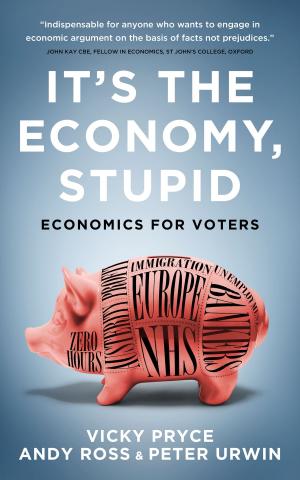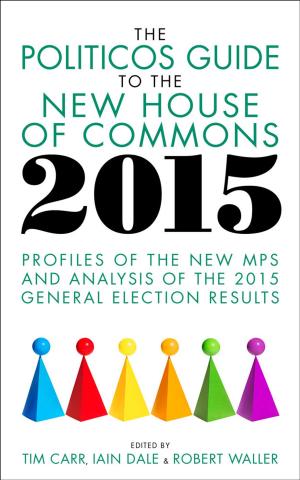The 'R' Word
Nonfiction, Social & Cultural Studies, Social Science, Discrimination & Race Relations, Political Science| Author: | Kurt Barling | ISBN: | 9781785900099 |
| Publisher: | Biteback Publishing | Publication: | November 27, 2015 |
| Imprint: | Biteback Publishing | Language: | English |
| Author: | Kurt Barling |
| ISBN: | 9781785900099 |
| Publisher: | Biteback Publishing |
| Publication: | November 27, 2015 |
| Imprint: | Biteback Publishing |
| Language: | English |
Race and racism remain an inescapable part of the lives of black people. Daily slights, often rooted in fears and misperceptions of the ‘other’, still damage lives. But does race matter as much as it used to? Many argue that the post-racial society is upon us and racism is no longer a block on opportunity - Kurt Barling doubts whether things are really that simple. Ever since, at the age of four, he wished for ‘blue eyes and blond hair’, skin colour has featured prominently as he, like so many others, navigated through a childhood and adolescence in which ‘blackness’ defined and dominated so much of social discourse. But despite the progress that has been made, he argues, the ‘R’ word is stubbornly resilient. In this powerful polemic, Barling tackles the paradoxes at the heart of anti-racism and asks whether, by adopting the language of the oppressor to liberate the oppressed, we are in fact paralysing ourselves within the false mythologies inherited from raciology, race and racism. Can society escape this so-called ‘race-thinking’ and re-imagine a Britain that is no longer ‘Black’ and ‘White’? Is it yet possible to step out of our skins and leave the colour behind?
Race and racism remain an inescapable part of the lives of black people. Daily slights, often rooted in fears and misperceptions of the ‘other’, still damage lives. But does race matter as much as it used to? Many argue that the post-racial society is upon us and racism is no longer a block on opportunity - Kurt Barling doubts whether things are really that simple. Ever since, at the age of four, he wished for ‘blue eyes and blond hair’, skin colour has featured prominently as he, like so many others, navigated through a childhood and adolescence in which ‘blackness’ defined and dominated so much of social discourse. But despite the progress that has been made, he argues, the ‘R’ word is stubbornly resilient. In this powerful polemic, Barling tackles the paradoxes at the heart of anti-racism and asks whether, by adopting the language of the oppressor to liberate the oppressed, we are in fact paralysing ourselves within the false mythologies inherited from raciology, race and racism. Can society escape this so-called ‘race-thinking’ and re-imagine a Britain that is no longer ‘Black’ and ‘White’? Is it yet possible to step out of our skins and leave the colour behind?















